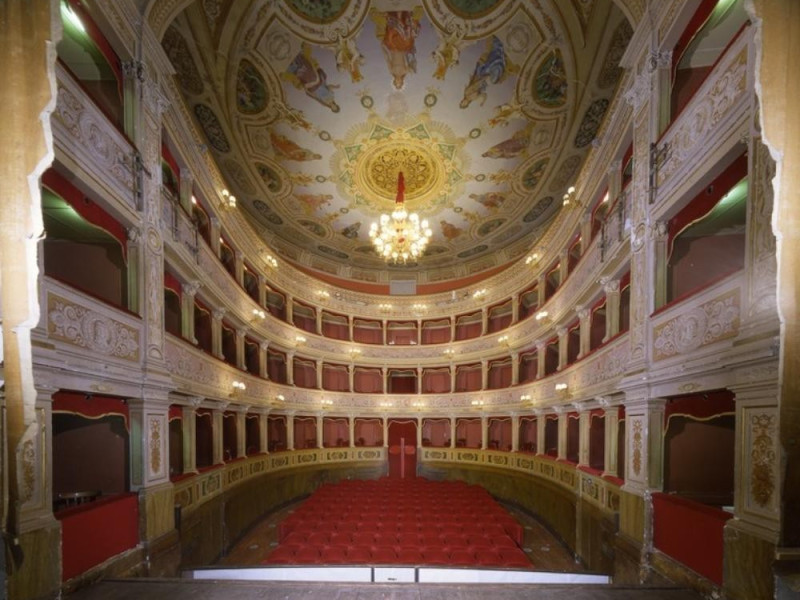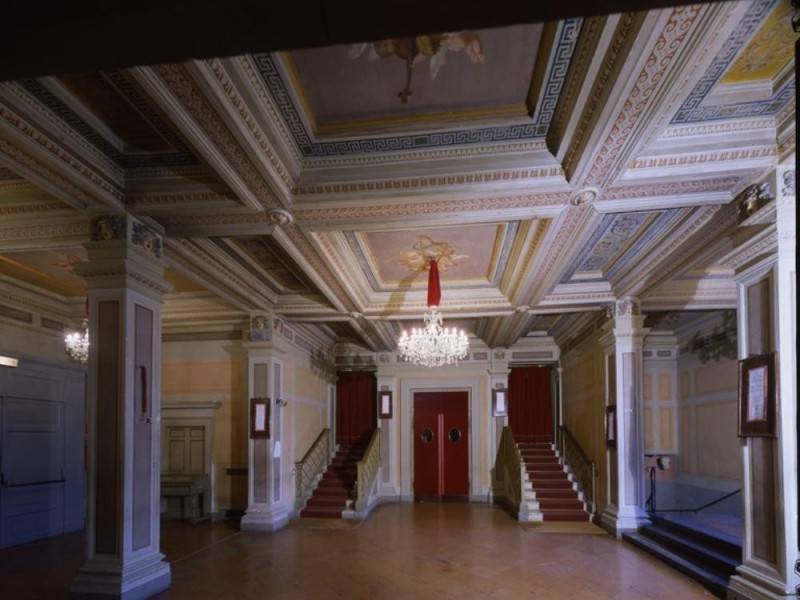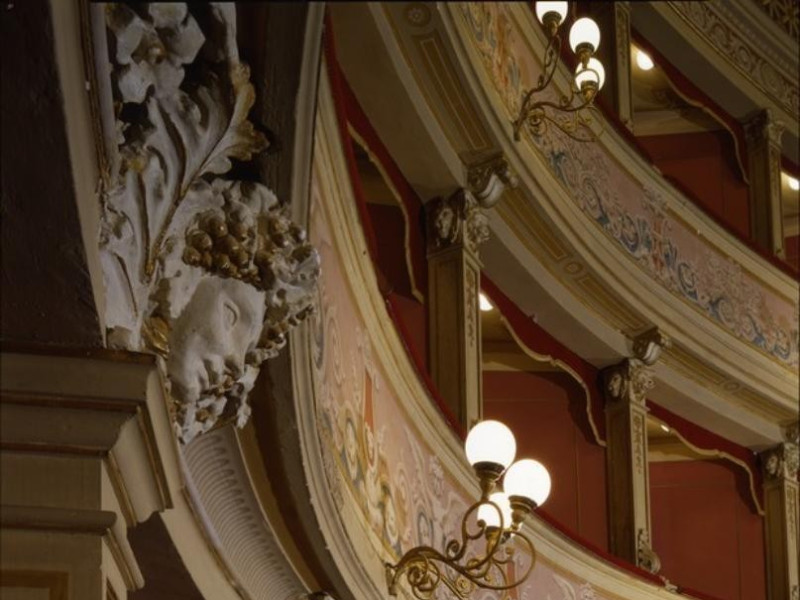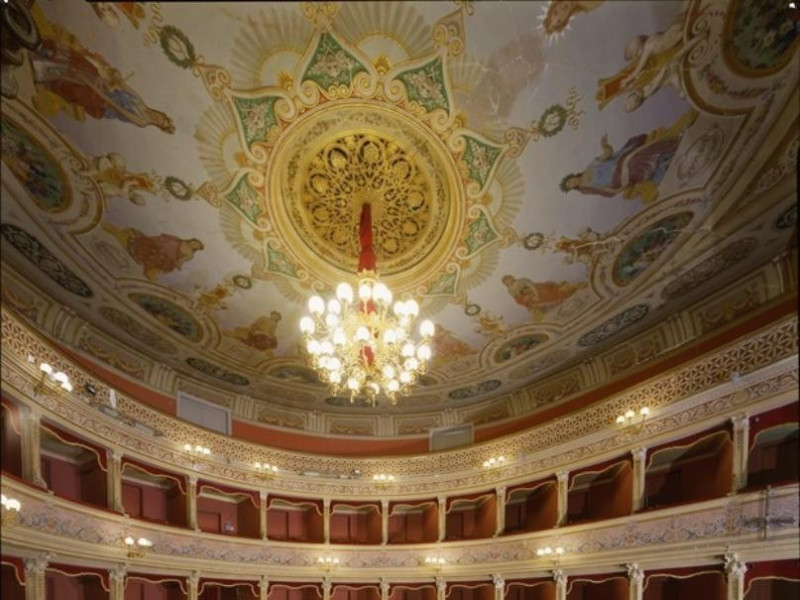Luogo - Point of interest
Teatro Caio Melisso
Where
Piazza Duomo, Spoleto (Perugia)
Caio Melisso Theater
The Teatro Caio Melisso is in the historical center of Spoleto, in the suggestive scenery of Piazza del Duomo, on the artificial terracing at the foot of Colle Sant’Elia.
The current Theater descends from the oldest theater in Spoleto, the Teatro Nobile, which has undergone several transformations. The construction work started in 1657, when the Accademia degli Ottusi succeeded in obtaining a space in an extremely interesting urban location, between the Opera del Duomo and the Church of Santa Maria della Manna d’Oro.
Finely decorated, it contains interesting 19th century paintings executed by the Perugian artist Domenico Bruschi.
Its unusual location, in Piazza del Duomo, makes the visit more suggestive.
The current features of the Theater are the result of the design of Giovanni Montiroli, who—between 1877-1880—modified the horseshoe-shaped curve of the audience hall to improve the vision of the stage for the public, and built the three orders of boxes, tearing down the old wooden structures.
The Perugian painter Domenico Bruschi decorated the ceiling, featuring Apollo and The Nine Muses, alternated with floral decorations in the lunettes, overlooked by monochromatic putti, while he painted The Apotheosis of Gaius Melissus on the stage curtain.
The Theater is entitled to Gaius Melissus—freedman friend of Gaius Maecenas—from Spoleto, who was the trusted librarian of the Emperor Augustus, writer, playwright and grammarian. After a long period of abandonment, the Theater was restored in 1958, on the occasion of the first edition of the Festival dei Due Mondi—The Festival of the Two Worlds—with a complete revision of all its fundamental structures.
The interest for any form of theater has always been very alive in Spoleto to the point that, in the 17th century, it produced a number of playwrights, among them Campello, Castelli, Lauri, Luparini and Vittori, not counting Giovanni Gherardi, the progenitor of one of the most famous genealogies of Harlequin comedians and comics of the Commedia dell’Arte.
In 1817, Gioacchino Rossini performed the drama L’Italiana in Algeri, playing the double bass, barely having the time to admire its 18th century decorations, which were partly destroyed and partly stolen soon after, in 1819, by some unknown “Florentines”.




